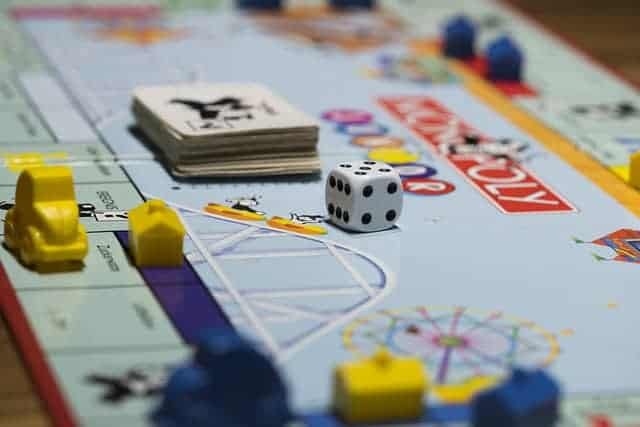As a parent, and a teacher myself, I’ve met countless parents who’ve told me: “Math isn’t meant for my child” or “My child just isn’t a math person.” What is even unfortunate, is that I’ve seen kids who label themselves that way, very convinced that math is some kind of talent they just don’t have – and will never have!
But let me tell you something I’ve learned after years of parenting, and teaching – in that order: there’s no such thing as a “Math person.” Every child can learn math. Not just learn it, but truly understand, and most of all, enjoy it. The key is how we approach math, both at home and at school.
I know math can be intimidating, especially if it wasn’t your favourite subject growing up. But here’s the good news: with the right steps, you can help your child become confident and skilled in math. It’s not about having a special knack for numbers – it’s about having the right mindset, regular practice, and making math meaningful.
In those lines, let’s explore how to make your child good at math. I have to underline that these are strategies I’ve seen work for kids from all kinds of backgrounds and learning levels.
Here are four ways how you can make kids good at math:
Table of Contents
Build Confidence
One of the most important things I’ve seen and experienced as a teacher, is the power of belief. When a child knows someone believes in them, it can change everything. And ‘am sure you too can relate to it, especially if you’re a parent, teacher or a caregiver.
Here’s a quick story. Few years ago, I had a student who struggled with math. She wasn’t confident, avoided raising her hand almost all the time, and would get confused during tests. One day, I pulled her aside and said:
“You’re smart, and I know you can do this. You just need a little extra practice, and I’ll help you.”
Following that interaction, her whole demeanour changed. She started coming in during lunch for extra help, wanting to tackle problems she used to avoid. And slowly, she began to see herself differently.
Wonder how so? She believed in herself because someone else did first!
The truth is, every child will struggle at some point in math. And so did I. It’s part of learning. But when they hit that wall, how we respond to the situation is what truly matters.
If we say, “It’s okay, you’re just not a math person,” they might stop trying altogether. But if we say, “You can do this. Trust me. It just takes some extra work”, we’re helping them not just push through, but even drill through!
So here’s how to make kids good at math by building confidence:
- First and foremost, be patient. Learning takes time, and kids need to feel supported, not rushed. This is key!
- Encourage their effort, not just results. Praise them for working hard, even if they don’t get the right answer right away. Praise and encouragement can do wonders to a child’s confidence.
- Share your own experiences. If you struggled with math but overcame it, let them know. It helps them see that challenges are normal. Most of all, if they personally know someone who’s overcome the challenge, it only strengthens their belief that they too can.
- Believing in your child might seem small, but it’s the foundation for everything that helps transform them. When they know you’re in their corner, they’ll have the courage to try – and that’s where growth and transformation begins.
Make it Look Simple
Tell them, clearly, that math isn’t about memorizing formulas or steps, and that it’s about truly understanding how things work. When kids understand math, they don’t just learn it, they remember it forever and can apply it in real life.
Let me share an example that always clicks with kids: Fractions. Instead of jumping straight into numbers and equations, I like to use something familiar to them – a pizza (or a birthday cake)!

Imagine we have a pizza cut into 8 slices. If we eat 4 of those slices, how much of the pizza is left? Most kids can visualize this easily: half. Now, instead of just blindly memorizing “4 out of 8 is one-half,” they can actually see it. From their perspective, it is proof that 4 out of 8 is half. And that understanding makes it stick – forever.
This approach works for almost any topic on math. For ratios, I might compare the number of apples and oranges in a fruit basket. For addition and subtraction, I might use toys or candies. The key is to connect math to something real, so kids can picture or visualize it in their heads.
So here’s how you can help your child understand math better:
- Use visuals and everyday examples. If they’re learning multiplication, talk about groups of apples at the grocery store. If they’re working on division, split snacks into equal portions.
- Ask questions. Instead of giving them answers, ask, “Why do you think that works?” or “Can you show me another way to solve it?”
- Keep it simple. Avoid using technical terms as much as you can and focus on helping them see the logic behind the math.
- When kids understand math, it feels less like a chore and more like a jigsaw puzzle they know how to solve in 4 simple steps.
Make Math Fun
Let’s face it—if math feels boring or like a chore, kids are going to resist it. But when math is fun, they’ll want to dive in without even realizing they’re learning.
One of the best ways how you can make math fun for kids is through games. For example, card games like “War” can help kids practice comparing numbers. Board games like Monopoly teach counting, addition, and even basic budgeting. And simple, everyday games can work too.

When my students were learning multiplication, I’d play a quick-fire game with dice. Each roll became a mini-challenge: roll two dice, and whoever multiplied the numbers correctly first got a point. The kids loved it, and they got faster with their multiplication without feeling like they were being “drilled.”
Here’s another example: When I was growing up, my mom used to take me to the local market with 10 rupees and let me choose what to buy. The catch? I had to calculate prices and change before we got to the counter. I didn’t realize it at the time, but she was teaching me real-world math in a way that was interesting.
So here’s how you can make math fun for your child:
- Play games. Card games, board games, and even apps can make math practice enjoyable.
- Use everyday moments. Cooking, shopping, or even counting cars on a drive can become a math lesson in disguise.
- Keep it light. Don’t turn every game into a math test. The goal is for your child to enjoy the process, not feel pressured.
- When math is fun, kids are more likely to stick with it—and the learning happens naturally.
Give Math a Second Chance
If math wasn’t your favourite subject growing up, you’re not alone. Many adults carry their own frustrations or struggles with math into parenthood. But here’s the thing: your feelings about math can influence how your child approaches it.
Kids pick up on our attitudes, even when we don’t say it outright. This is where you have to remember:
Children Learn What They See.
If they hear you say, “I’m not a math person,” they might start thinking, “She’s my mom, and she herself tells me she’s not a math person. Then maybe I’m not one either.” That’s why it’s so important to give math a second chance—not just for your child, but for yourself!
Of course you don’t have to become a math genius to make this shift. But you can start small.
For example, if fractions make you nervous, try baking cookies with your child. Measuring half a cup of sugar or dividing a recipe in half is a great way to explore fractions in a low-pressure, real-world context.
Or, if multiplication feels daunting, play simple number games with your child. Roll two dice, multiply the numbers, and see who gets the higher score. As you practice together, you might be surprised at how much fun you both have.
So here’s how you give yourself a second chance:
- Change the narrative. Instead of saying, “I was never good at math,” try, “I didn’t love math when I was younger, but I’m learning to enjoy it now.”
- Learn together. If your child struggles with a concept, explore it together. Watching you work through a problem shows them that learning is a process – at any age, and is not something they need to get or understand immediately.
- Be open to discovery. Math is everywhere—in nature, in patterns, and in everyday life. Point out to the petals of a flower, the colours of a rainbow, the number of ripples when a drop of water falls into a bucket full of water, etc. These moments to spark curiosity.
When you give math a second chance, you’re not just helping your child. You’re showing them that learning is a lifelong journey. And who knows? You might even get better at numbers along the way.
Conclusion
Helping your child become good at math isn’t about making them become a math expert. It’s about creating the right environment for them to learn the subject. So believe in them, encourage understanding over memorization, make math fun, and give it a second chance if you need to.
Every child has the potential to succeed in math when we approach it with patience and creativity, and give them the belief that it’s possible. Let them know that it’s not about perfection, it’s about progress.
The most critical aspect of how to make your child good at math, is to help them understand that math is more than just numbers and equations. It’s a tool for problem-solving, critical thinking, and exploring the real world. By showing your child that math can be meaningful and even enjoyable, you’re giving them skills they’ll use for the rest of their life.
So take it one step at a time, celebrate small victories, and enjoy the journey of learning together.